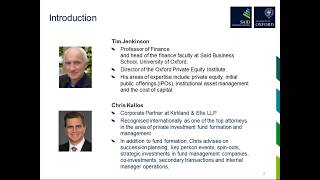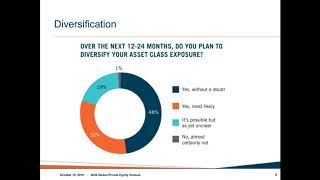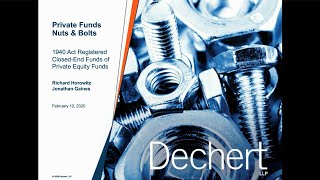Monday, 19 January, 2026г.
















Где искать: по сайтам Запорожской области, статьи, видео ролики
пример: покупка автомобиля в Запорожье
The Truth about Private Equity
To start, the definition of private equity is pretty simple: those two words its:
'Private' -- meaning not public like IBM or Facebook which you can buy stock on the exchange
and its
'Equity' -- which simply means ownership of a company.
Private equity -- in a broad sense, means private ownership stakes in companies.
That's it.
In a second we'll cover the term as it applies to most modern finance.
Most businesses on earth are some form of private equity. Almost all businesses are either private equity or public equity (they have shares that trade on a stock exchange) or government owned (don't get me started on that). A small local sandwich shop owned by your neighbor is private equity, a car wash owned by two brothers is private equity, Fidelity Investments, a very large financial company owned by the Johnson family, is private equity. If you own a small business that is a form of private equity also.
Just about every tech company success: Google, Amazon, Dell etc. started out backed by venture capital which is another word for private equity, typically referring to earlier stage private equity investments.
Now, although the true definition is rather broad, covering most of the companies in the world, usually when people today refer to private equity, they are talking about large private equity investment firms who own major stakes in major companies. As huge as these firms are, they only make up a small percentage of actual private equity investments worldwide.
Since these huge firms are the focus, let's explore exactly what they do. Basically the large PE firms, as they are known, buy companies and try to make a profit from them.
A firm can make a profit by sharing the profits earned by the company, this is not very common as most firms and their investors are looking for an exit from the investment. In other words they want to buy the company and then sell it later for a profit.
A firm may be able to make a profit by breaking the company up into pieces and selling the parts. Other than in the movies and the fantasies of communists, this is virtually non-existent -- almost no company is worth more broken up than it is together as a company. The myth of breaking companies apart was popularized in the 1980s by investors dubbed "corporate raiders" but even in its heyday it was rare -- often, even then, companies that were "broken up" where simply separated into independent, more focused companies which each grew successfully. The most likely example that would happen now is in some odd conglomerate: a company who makes tires and vitamins and toys and magazines -- where it would make sense to have the separate units of the business operate independently for efficiency. This isn't very common.
Protest PE
In almost no modern cases can we find any reasonable number of companies where a PE firm fires all the employees and breaks down a company they buy because the empty shell is worth more than the whole. It just doesn't happen. Investors don't want to own smaller companies, they want to own larger companies.
That's the second sad myth that came out of the election cycle. No one wants to buy a company for the purpose of shrinking it. When a PE firm buys a company the first thing they are looking to to is increase revenue and size of the company. Does anyone really think that investors would prefer to shrink a 5000 employee tech company down to 20 employees just because they like firing people?
Yes, some investors make layoffs in their investments. It's actually not that common and probably occurs in 10% or so of the investments, depending on the investor. When investors do make layoffs it is to improve profitability and sometimes to keep the company afloat. Layoffs are a horrible and traumatic thing for those involved but they are also a healthy part of the evolution of business. In Massachusetts we had a PC company boom in the 80s. Wang Computer, Digital and others boomed. A few years later, 90% of them crashed and the workers were laid off. This was a natural part of the shakeout of business development and paved the way for the next booms in the 90s and 2000s in the same area, often the same people. Certain governments and people would like to see protectionist policies preventing layoffs but, had we done so, we'd be much further behind.
Anyway, layoffs are not a major part of PE investing. Much more typically its a strategy of growth: how to add more retail stores, restaurants, products etc. Also key to PE investing is sometimes specialized knowledge of certain industries, connections and clever financial calculations and debt structuring.
Take a look at the websites of the top 10 PE firms and look at their portfolio companies. Are these companies being squashed or helped?
The main way PE investors make money is by building companies and selling them for more.
That's good for employees, good for the economy and good for the world.
Pretty simple.
Теги:
Private Equity (Industry) Private equity investing venture capital Romney collection layoffs job creation investment truth about private equity what is private equity employers vulture capitalists Newt Gingrich hedge funds Goldman Sachs Citigroup JP Morgan investment banking Bain capital Carlyle group KKR Blackstone group Apollo Kleiner Perkins how private equity works
Похожие видео
Мой аккаунт


 У вашего броузера проблема в совместимости с HTML5
У вашего броузера проблема в совместимости с HTML5


